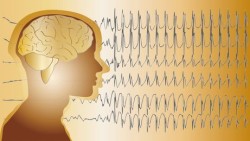Top Class Actions’s website and social media posts use affiliate links. If you make a purchase using such links, we may receive a commission, but it will not result in any additional charges to you. Please review our Affiliate Link Disclosure for more information.

In addition to treating patients with epileptic seizures, Dilantin is also used to treat patients with a variety of psychiatric disorders. This use is known as “off-label” use, as it is prescribed by physicians for uses not indicated on the product’s label by the manufacturer.
Off-label prescribing is perfectly legal to be undertaken by physicians, and patients have received phenytoin treatment for depression and anxiety as well as other mood disorders, Tourette’s syndrome, ADHD, bipolar disorder and more.
Many patients have gone on to have excellent results after using phenytoin. Some conditions that were resistant to treatment using other drugs have responded successfully to the use of phenytoin. However, phenytoin induced cerebellar ataxia can cause significant complications above and beyond what the drug was designed to treat.
Phenytoin Induced Cerebellar Ataxia
Ataxia refers to a loss in control of body movements and of muscle coordination. It can affect large movements like walking and reaching for objects and can also affect movements of smaller muscles that control eye movements, swallowing and speech.
Problems concerning an area of the brain known as the cerebellum are the most common cause of ataxia. Located at the back of the head near the brainstem and spinal cord, the cerebellum is responsible for movement and coordination.
While it may not be widely known by patients, phenytoin induced cerebellar ataxia is a potential side effect from taking the antiepileptic drug. This is seen because the drug can cause atrophy, or shrinkage, in the cerebellum in the brain after long-term use.
When atrophy is present in the cerebellum due to the drug’s effects, it begins to shrink and the connections between the neurons, or nerve cells, in the brain are lessened.
Cerebellar Ataxia Symptoms
The symptoms of phenytoin-induced cerebellar ataxia look a lot like severe alcohol intoxication. In fact, when a person is under the effects of alcohol, the cerebellum is the part of the brain that is most highly influenced and affected. People with alcohol intoxication have difficulty speaking, may have challenges walking, and they may have difficulty controlling their eye movements, a condition known as nystagmus.
Patients suffering from cerebellar ataxia caused by Dilantin may walk as if they are lurching forward. Their arms or legs might have unsteady jerking actions, and they may find it hard to keep their posture and balance as they walk according to Johns Hopkins Medicine.
Cerebellar ataxia can affect daily activities. If the patient has trouble controlling movement, the actions of brushing the teeth, buttoning clothes, opening jars and pouring liquids are among tasks that may become very difficult. A patient might have trouble sitting on the edge of a bed without making constant bobbing motions that originate from the trunk of the body.
Even the patient’s voice can be affected by cerebellar ataxia. The tone, pitch, volume or cadence of one’s speech might become noticeably different.
In some cases, cerebellar degeneration can cause cognitive and emotional problems. The patient may not be able to remember newly learned facts or might have problems making plans or seeing thoughts through in their proper order. Others may suffer from irritability, depression or anxiety.
Even though Dilantin has been used for decades and is considered relatively safe, it’s a potent drug. Even a slight change in the dose can cause a patient to experience toxic levels in the bloodstream. Patients who also take certain medications to treat abnormal heartbeats, ulcers, alcoholism or tuberculosis might be at an increased risk of toxicity due to drug interactions with Dilantin.
In addition to long-term phenytoin ingestion, ataxia may be caused by a hit to the head, stroke, cerebral palsy, autoimmune diseases, infections, tumors or toxic reactions to some types of medications, including chemotherapy drugs.
Imaging studies have shown that cerebellar ataxia is associated with the use of the drug phenytoin. While studies cannot say for certain that the drug causes the ataxia, the studies can say that the two are associated. However, it is deduced that the drug causes the condition because of the temporal association between the onset of symptoms and the use of Dilantin.
Patients who have suffered phenytoin-induced cerebellar ataxia state that the drug’s manufacturer did not properly warn of the risks associated with the drug’s use.
In cases where a drug manufacturer fails to warn of health risks associated with the drug, as in the case of phenytoin and cerebellar ataxia, product liability lawsuits can be filed. These lawsuits state that there was a defect in the way that information was presented about the drug. These lawsuits may also allege that the drug was defective in design or manufacture.
Plaintiffs who go onto file product liability lawsuits against a drug’s manufacturer may be able to recover damages related to medical expenses, pain and suffering, lost income and more. An experienced product liability attorney can provide a free case review and consultation for patients who have it experienced phenytoin induced cerebellar atrophy to discuss their legal options.
In general, phenytoin lawsuits are filed individually by each plaintiff and are not class actions.
Do YOU have a legal claim? Fill out the form on this page now for a free, immediate, and confidential case evaluation. The attorneys who work with Top Class Actions will contact you if you qualify to let you know if an individual Dilantin lawsuit or Dilantin class action lawsuit is best for you. Hurry — statutes of limitations may apply.
ATTORNEY ADVERTISING
Top Class Actions is a Proud Member of the American Bar Association
LEGAL INFORMATION IS NOT LEGAL ADVICE
Top Class Actions Legal Statement
©2008 – 2024 Top Class Actions® LLC
Various Trademarks held by their respective owners
This website is not intended for viewing or usage by European Union citizens.
Get Help – It’s Free
Join a Free Dilantin, Phenytoin Cerebral Atrophy Class Action Lawsuit Investigation
If you or a loved one were injured by Dilantin/phenytoin side effects, you may have a legal claim. Fill out the form for a free case evaluation.
An attorney will contact you if you qualify to discuss the details of your potential case.
Please Note: If you want to participate in this investigation, it is imperative that you reply to the law firm if they call or email you. Failing to do so may result in you not getting signed up as a client, if you qualify, or getting you dropped as a client.
Oops! We could not locate your form.












